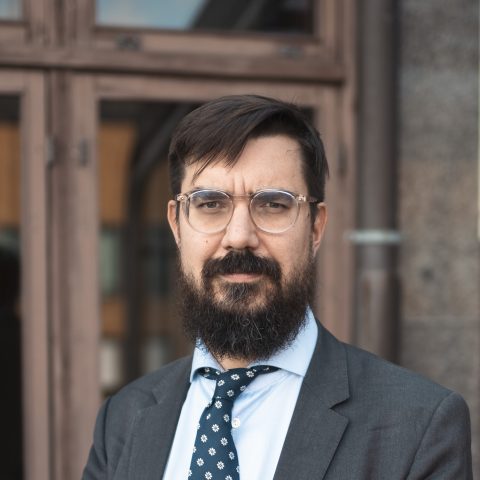National Dialogues Conference stresses inclusivity in peacebuilding
The sixth National Dialogues Conference took place between 11-13 June 2024 in Helsinki. The Conference aims to foster open discussion between high level peacebuilding experts that enables the sharing of both successes and challenges. The conference also provides a platform where theory and practice come together. While CMI was this year’s main organiser, FCA hosted sessions on elections, traditional mediation and artificial intelligence (AI).
All photos courtesy of: CMI – Martti Ahtisaari Peace Foundation
During the sixth National Dialogue Conference, more than 200 peacebuilders and peace practitioners from over 60 countries reflected on previous discussions as well as their individual efforts.
Despite our best efforts, we must recognise that we are far from where we need to be to achieve the Sustainable Development Goals and foster sustainable peaceful and inclusive societies.
The number of armed conflicts in the world is at its highest level since the Second World War. There are significant competitions happening between major powers. The middle power competition is also intensifying, drastically changing the security policy environment.
Many people are talking about the ‘polycrisis’ where conflicts and wars, environmental crisis and social and economic challenges reinforce each other. Social media is being weaponised to cause further distrust between groups while artificial intelligence is being weaponised in conflict zones.
Despite these complex challenges, we need to continue to learn and adapt. Mechanisms of the past are not sufficient to address our current challenges and therefore this conference sought to explore how peacebuilding can adapt to new realities on the ground.
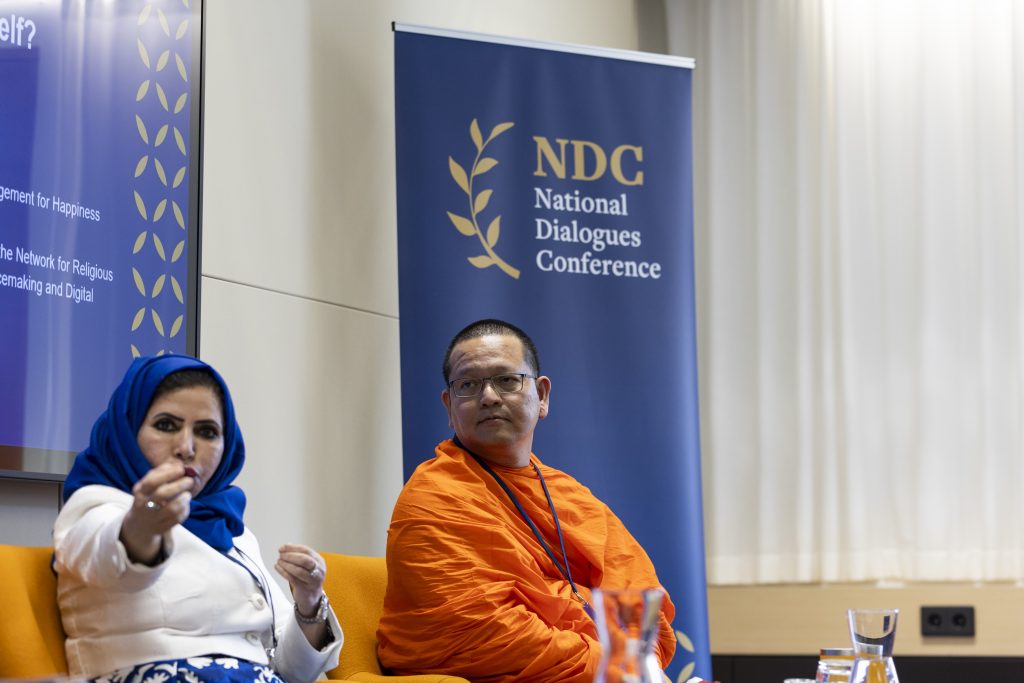
Lessons from bitter experience
During the conference I and my FCA colleagues learned from the experiences of South Africa, Myanmar and Yemen – and while some of these experiences are bitter, they still offer valuable lessons.
Even if National Dialogue processes do not reach their intended objectives, as it is often the case, they can still have a vital role in breaking taboos, bringing issues to the agenda or keeping political actors in the talks, rather than resorting to violence to gain their objectives outside the table. In some cases, the National Dialogue process may have reached its formal objectives but still failed, due to lack of political support for implementation or due to the fact that the process has been used as a tool to gain legitimacy by political elites rather than as a tool for transformative change
Reflecting on South Africa’s transition to apartheid to a resilient constitutional democracy, it was highlighted that justice and reconciliation are two sides of the same coin – justice without reconciliation is vengeance and reconciliation without justice is betrayal. Transitional justice describes a set of approaches that communities can use to move toward a lasting peace and is closely linked to National Dialogues.
We also considered the question of federalism: could decentralisation and federalisation have mitigated conflicts as an example in Myanmar? In South Africa another route was taken, as federalism might have institutionalised the differences.
Myanmar’s example demonstrated that dialogue is a multifaceted and complex process – multi-layered conflicts need multi-layered National Dialogue Processes. Their process demonstrated that political will is key to continuing the national dialogue and reaching results. Building a foundation of dialogue and trust between all stakeholders will not only strengthen National Dialogues but will also be a valuable experience to build upon dialogues are needed when future problems arise.
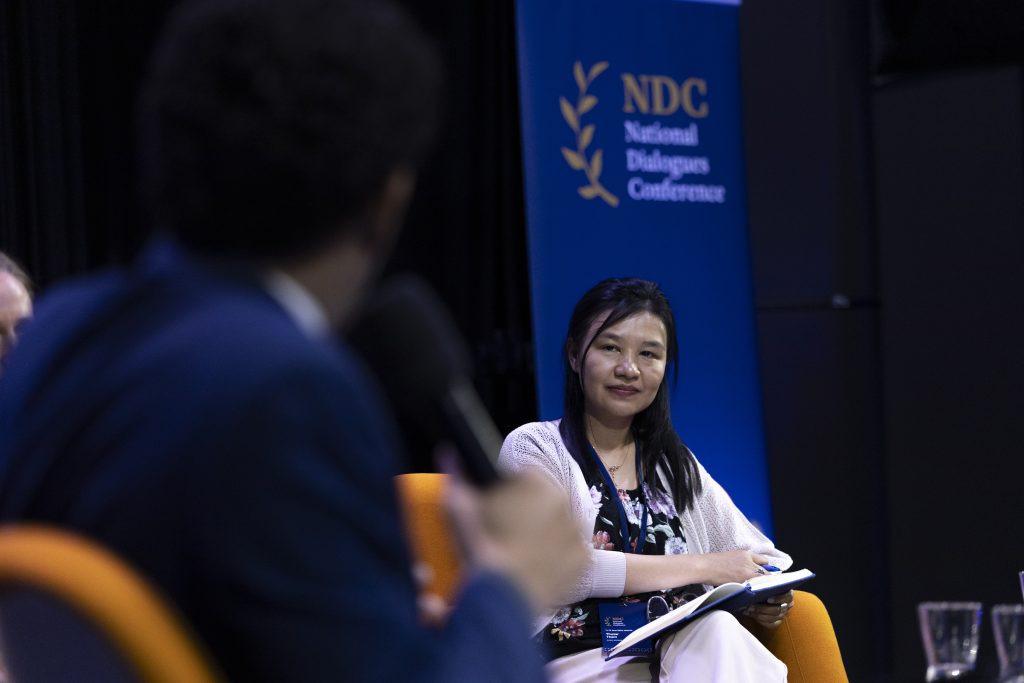
Inclusivity is key
Inclusivity is the cross-cutting issue for every discussion within National Dialogue Conferences.
We heard a powerful example highlighting the impact that women, youth, and civil society had in National Dialogues in Yemen. Traditionally in Yemen, when talking about politics, it was about who governs. The National Dialogue and especially, the participation of women, youth and civil society changed that –the focus shifted from who to how can politics serve people in Yemen and provide decent level of living.
However, the Yemen experience also warned us that dialogue processes must be connected to the evolving dynamics on the ground. You cannot disconnect the talks from the day-to-day incidents or the lack of political will. Dialogue will fail if participants are not fully committed and honest.
In following Yemen’s example and strengthening the engagement of women, we must continue to shift power inequities to allow for meaningful partnerships with women and feminist-led initiatives.
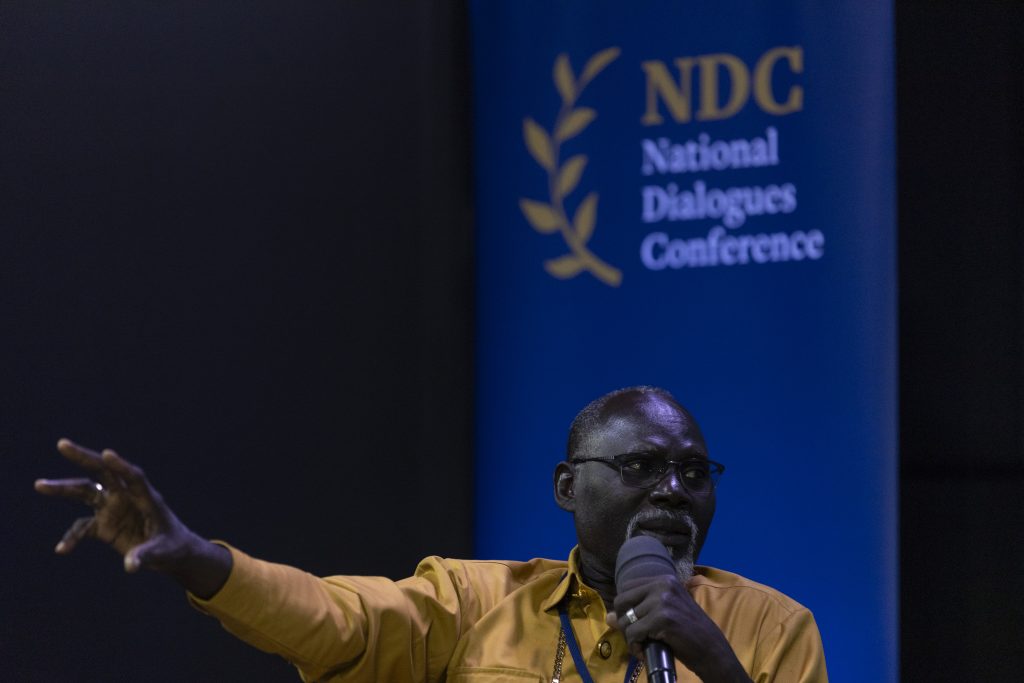
Role for traditional peace actors
A further theme of the conference was roles and engagement within the ecosystem, meaning the synergies and complementarity between the different actors, acknowledging and addressing the challenges within the ecosystem.
We heard about different mediation traditions and approaches, with a focus on religious and traditional actors as well as insider mediators.
We know faith-oriented, traditional and indigenous conflict resolution mechanisms are effective We, at the international level, should build upon already existing mechanisms and support these actors mechanisms, while recognizing the dynamics of inclusion and exclusion within.
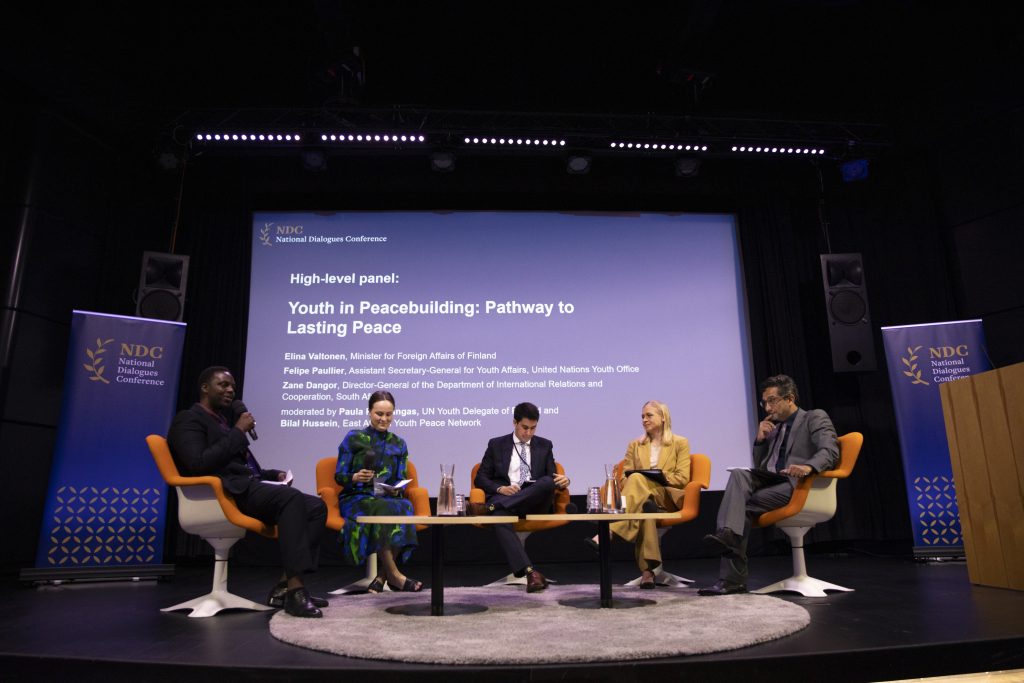
Youth are the present and the future
Youth are excellent in starting movements and setting agendas but their contributions in conflict resolution remain under-utilised. We need to dig deeper.
Many traditional, political, and religious institutions that we previously relied on for answers are aging and often disconnected from youth leadership and decision-making processes. We must not underestimate the importance of engagement and collaboration with youth. We need to stop viewing youth as the “future” and realise their present contribution. Our generations have so much to learn from each other. This will only happen if intentional space is created.
We cannot effectively answer any youth-related challenges if youth are not engaged within the peace process. It is necessary to stop seeing people young people as victims or only security risks but a positive resource to find solutions and who can be active to maintain lasting peace. There is no alternative as youth will be carrying our burden in the coming decades.
It is our collective responsibility to identify and actualise mechanisms and opportunities to advance the ‘no one left behind’ agenda through a two-fold approach: ensure these groups have the capacity to meaningfully participate and ensure there is intentional space created for these groups to meaningfully participate and lead.
Peace is much more than the absence of conflict
Peace encompasses human security, inclusive and democratic societies, respect for human rights and the right to an education and to a livelihood. It ensures that trauma-sensitive and trauma-informed approaches are included, further integrating mental health and psychosocial support.
At the conference, we continued to talk about the need to be innovative. Despite its challenges, we see innovative approaches to peace work supported by AI that takes place in the framing of digital democracy and digital participation. AI has the potential to profoundly change the democratic processes including dialogues: it provides incredible capabilities to advance sustainable peace.
—
The National Dialogues Conference is a joint effort of the Ministry for Foreign Affairs of Finland, CMI – Martti Ahtisaari Peace Foundation, Finn Church Aid, the Network for Religious and Traditional Peacemakers, Finnish Evangelical Lutheran Mission, and Abilis Foundation.
